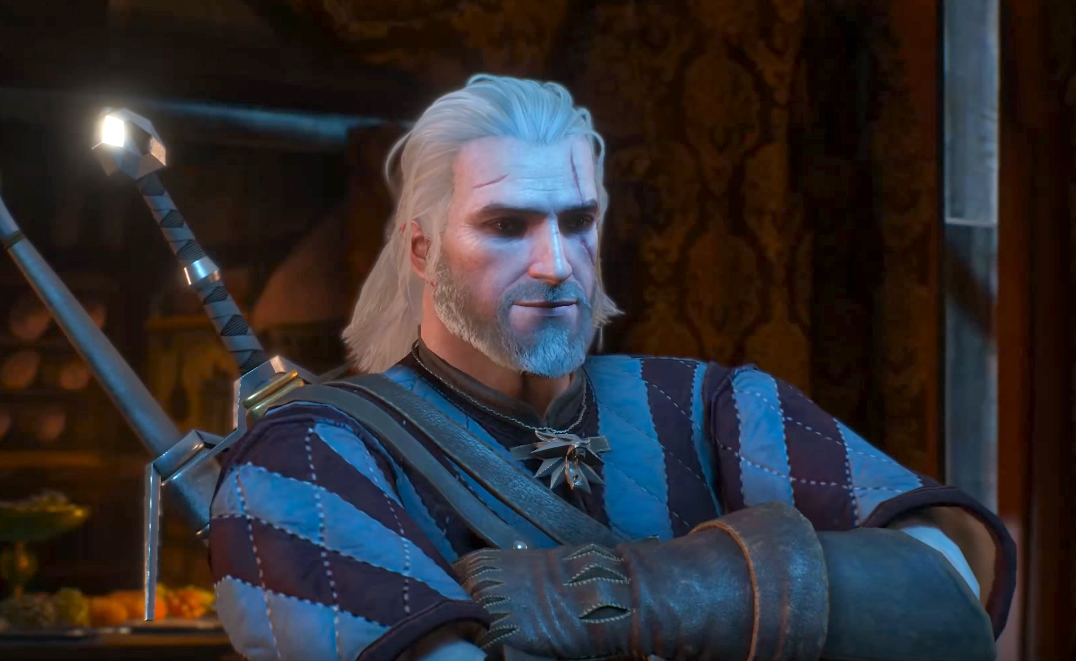My wild night in Atlanta with the voice of Geralt of Rivia
I got to know Geralt through crisis resolution and closing down a bar.
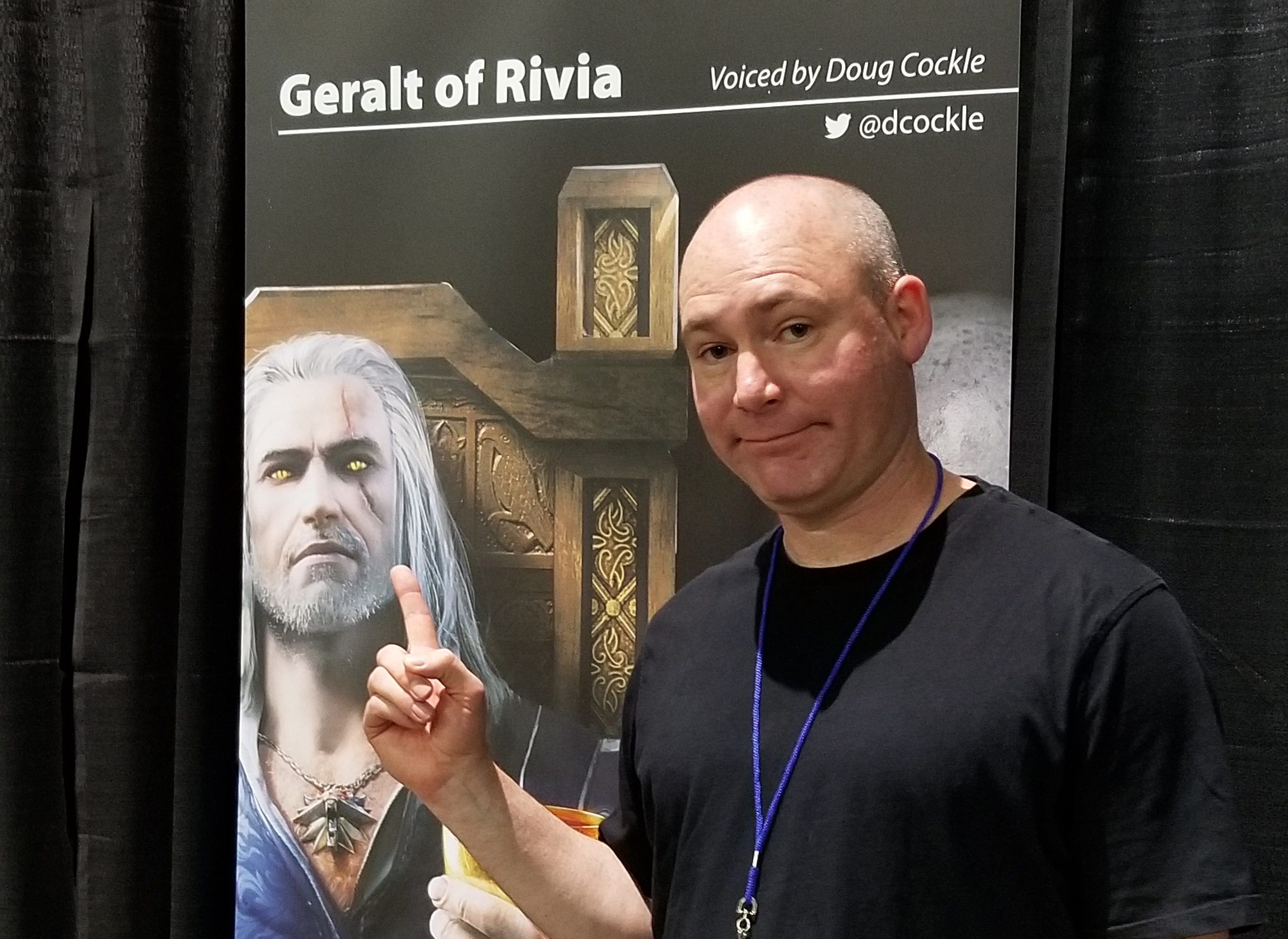
It's midnight on a miserably humid Thursday in downtown Atlanta, and sitting to my right is Geralt of Rivia. Well, I say he's Geralt, but he's actually Doug Cockle, the man who's voiced Geralt in multiple Witcher games12 years. I have a hard time telling the two apart at this point. I just watched him mollify a ranting Marine and scrape a collapsed woman off the street. I definitely saw some Geralt in him then. But in other moments, the deeply personal stories he shared were all Cockle.
Without Doug Cockle, Geralt as we know him would not exist. And without Geralt, he would be in a totally different place in his life—certainly not at a sports bar with me at last call, trying to process the evening we'd had. And yet I hadn't even planned to meet him.
An hour with Doug Cockle
I don't know it yet, but I'm about to spend way more than an hour with Doug Cockle.
I'm in Atlanta to cover Momocon, an anime-dominated convention that also has a healthy gaming presence. As I wade through swarms of colorful cosplayers, I open my event schedule and see that a promising panel starts at 8:30. It's titled "An Hour With Doug Cockle." It is 8:21 and I have no idea where to find Cockle's panel in the labyrinthine convention center, so I track down a map and start jogging. I don't know it yet, but I'm about to spend way more than an hour with Doug Cockle.
I sneak in a few minutes late and find a seat near the front. Cockle's on stage talking about what it means to be an actor. While voicing Geralt, he was also an acting professor for 13 years, and hearing him talk, that couldn't be more obvious. He's got an anecdote to back up every tip he throws out, he's wearing the kind of smile that only genuine passion can produce, and everything he's saying is going right over my head. As I fight the urge to raise my hand and ask a million questions, something jumps out at me when the panel host asks Cockle about the "truth" behind a character.
"The truth is, the truth is subjective," Professor Cockle replies. "It depends on your own perspective on life, what you've experienced, all kinds of things. Cultural, political, the economic environment around you. Truth is not something you can pin down very easily. But in terms of acting, what I've always seen as truth is the truth for the character."
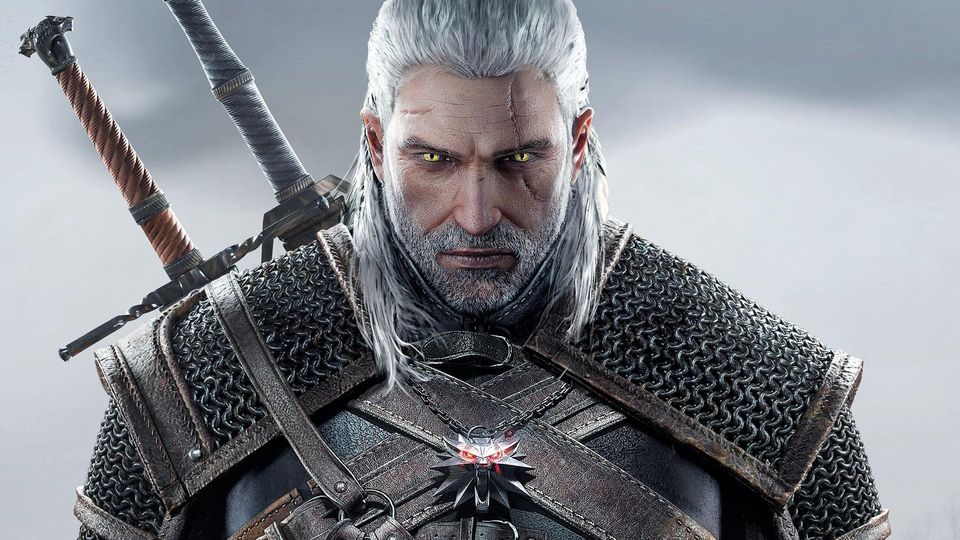
But in a game like The Witcher 3, built on choices in dialogue and action and even romance, what is the truth for Geralt? What is Cockle's image of Geralt? He starts to answer this when, true to anime convention tradition, he's asked to choose his favorite Witcher woman: Yennefer or Triss.
"Well, it's a divisive answer by nature," Cockle says, smiling at a Yennefer cosplayer in the audience. "But I have to go at this from Doug, not Geralt. Because I'm not Geralt, Geralt is Geralt. And for me, it's Triss. It feels to me like Yen is trying too hard to be his mom. She's looking after him but not in a cuddly, caring way, more in a 'don't do that, you'll hurt yourself' way. Whereas Triss to me feels more like a friend. My personal feeling about love is that the person you love and spend the majority of your time with should be someone who's your friend first and foremost, not just someone who makes you excited or whatever it is. They have to be someone you have genuine friendship with, and it doesn't feel to me like Yen and Geralt have that thing going on, it's more like a passion relationship than a friendship."
Keep up to date with the most important stories and the best deals, as picked by the PC Gamer team.
Right from the beginning, I never believed that he had no emotion.
Doug Cockle
An audience member mentions that, despite the excellent writing behind him, Geralt is sometimes stereotyped as another in a long line of gravel-voiced videogame protagonists sculpted from congealed testosterone. Cockle says that's never how he saw him.
"There was a journey with Geralt," he says. "If you've played all three games, you can hear that journey, I hope. It's certainly in the writing. That's what encouraged me to give him more emotion. Right from the beginning, I never believed that he had no emotion. That would make him a non-character. At the beginning, I did what they wanted me to do. I made him as emotionless as possible. But the actor and the human in me knew there was more to it than that.
"Geralt is not emotionless at all. The nature of the job that he has to do requires him to not give into his emotion. If he does, he dies. He doesn't want to die. He's scared of dying. But he can't give into that, either. He has to push all that down. Yes, the Trial of the Grass has hurt him and perhaps created a different perception of who he is and what he has to do, but he's not emotionless."
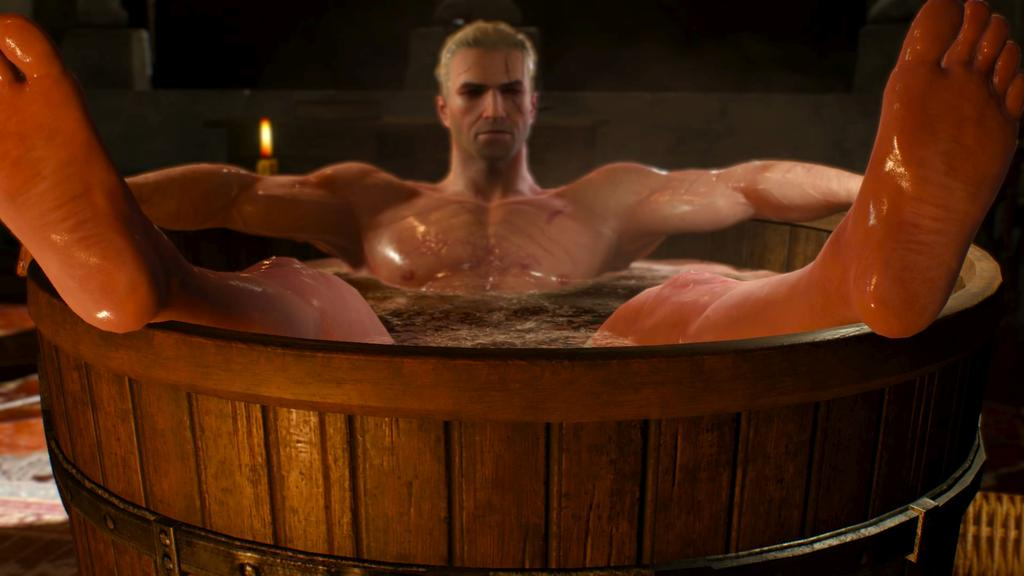
Apart from the passive influence that his acting provided—"you can't collaborate on a project that requires creative input and not subtly influence each other"—Cockle explains that at times he also played a more active role in shaping Geralt and the world of The Witcher.
"I came into the studio one day and the director and engineer said 'Doug, we've gotta talk to you.' I was like 'Oh gosh, I've done something wrong.' They took me into the control room and they said 'There's something we're recording today that we're really disturbed by. We wanted to get your feeling on it.' And it was a storyline that involved pedophilia.
"On the surface level, The Witcher wants to deal in the hard facts of bad stuff. That's what Geralt is fighting against. But this storyline had some twists. There's a quest with a guy who's really bad to women, and there are a lot of dead women around that he has killed. This was a similar thing but it was with kids. As soon as they told me about the storyline we were recording, I was like 'Yeah, I agree, we should talk to them about it.' So we called up CD Projekt and told them our concerns and, bless them, they said, 'Yeah, we can see what you're saying, we'll rewrite it and record something else today.' So that doesn't exist in the storyline anymore."
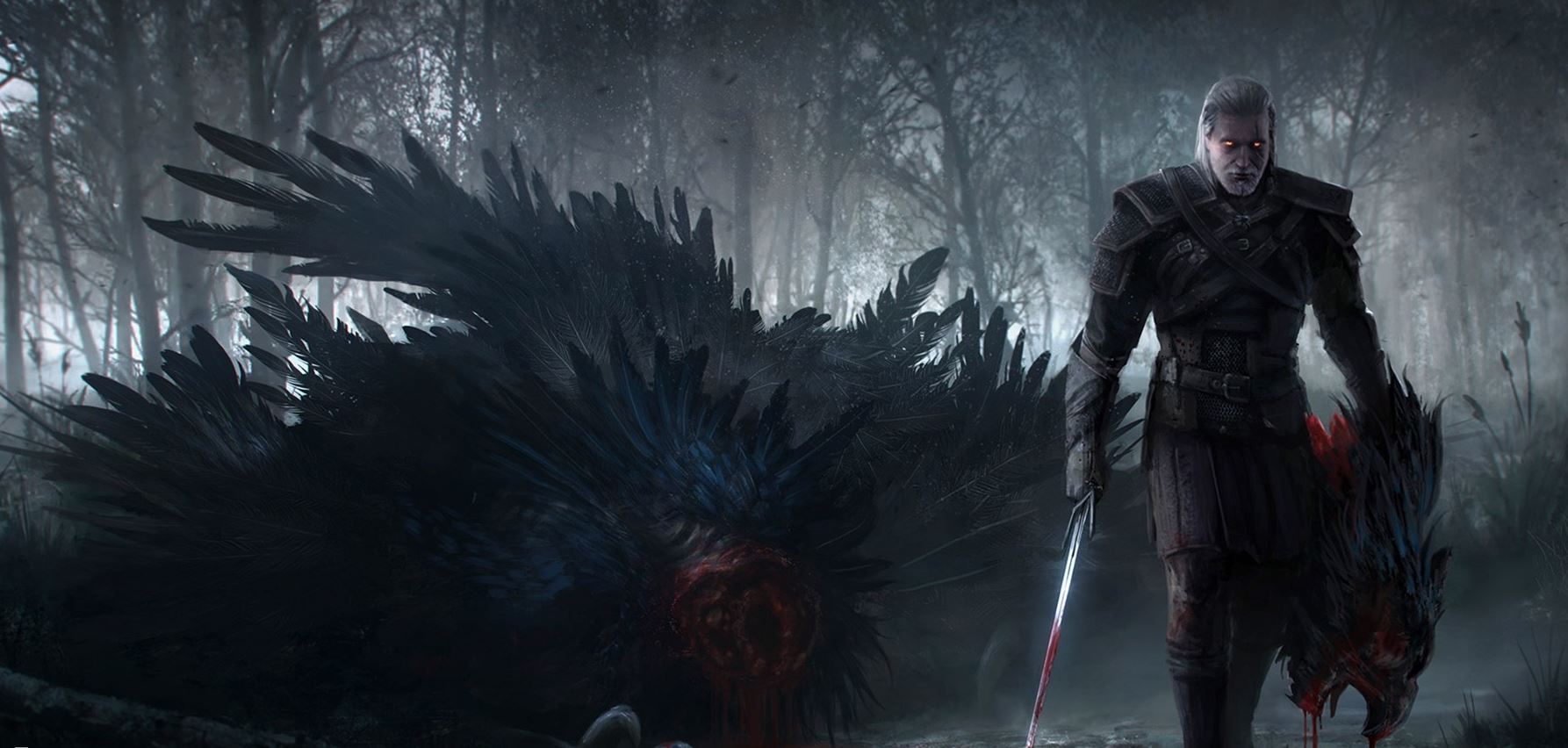
As we approach the end of the panel, we get another glimpse at the real Cockle when he shares a dream project he's been pocketing for decades.
Over 20 years ago, while camping in Washington with his wife, Cockle found a lost, raggedy stuffed animal, a little puppy dog. They tried to find its owner but to no avail, so they kept him. They named him Puppy and brought him on the rest of their vacation, photographing Puppy's exploits as he visited museums and cabins with them.
"He gradually developed this fantastic little personality," Cockle says, "and he became our child before we had children. I really can't emphasize enough how much he became that. So, one of the things I've been wanting to do for years is a children's book. I've already started something with it, and I'm interested to see where it goes, if it goes anywhere. It's a book called Puppy Goes West. Because he went from the East coast to the West coast in the car. It's a bit of a vanity project. Puppy is something close to my heart. Oh, and now we have a Border Terrier who looks just like Puppy."
It's a sweet way to end the panel, but I'm still craving more insight into Cockle's opinion of Geralt and how he influenced his character, so I flag him down for an interview. I ask him for 20 minutes. He agrees to meet me in the lobby of the hotel where the panel was held. While Cockle signs autographs, I get to the lobby early and pull up some chairs. Surely nobody will bother us here, I think to myself.
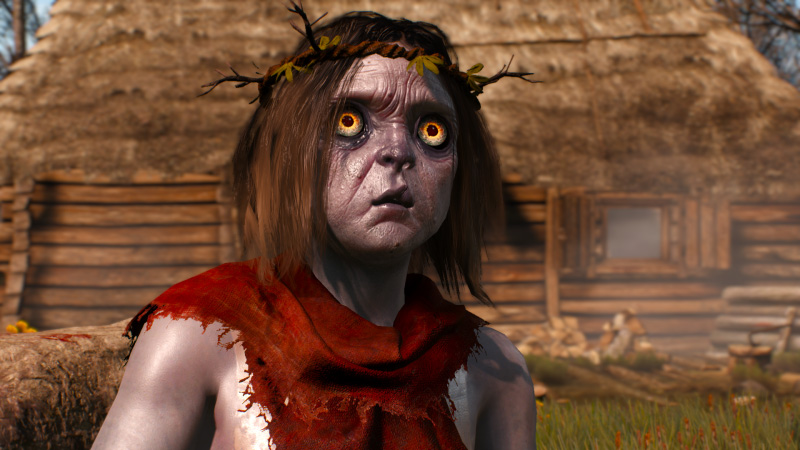
A run-in with Bernard
For just a second, perhaps due to his excitement, his voice slips into Geralt. He doesn't seem to notice, but it's definitely Geralt talking.
We sit down and get right to it. I ask about the first time he read the script for the original Witcher, and his first impression of Geralt.
"He was just another anti-hero," he says. "Somebody who has to do something they dislike on some fundamental level but feels a sense of—belonging. When I went to the audition, he wasn't described as an anti-hero, but that was what I took from how he was described. He was a warrior. He was a mercenary. He was emotionless. He was just a tough nut. Eventually what [CD Projekt] said was 'Think of Dirty Harry, the Clint Eastwood character.' Oh yeah, I know what that is. That's monotone, low, gravelly. I'll go for Clint Eastwood. So I did that, and that was what eventually clinched it for them. So after the audition, my first impression was that he's a Clint Eastwood kind of character. And that got further refined as we started recording the first lines of The Witcher 1. And it got further refined as we continued. When we came back for The Witcher 2, there was more emotion evident in the writing."
Like Geralt's writing, Cockle's voice was also refined as the series went on. "My voice didn't naturally go down there very easily," he says. "It was a real strain. Over the years of doing that voice, my voice has now changed. Some might say it's been damaged, some might say it's been trained."
I ask Cockle about how hard he pushed for a more emotional Geralt. But just as he starts to answer, we're thrown into a real-life sidequest.
Out of nowhere, someone behind me asks "You staying here?" in a thick Southern accent laced with anger. I turn to find a tall man with a dark tan who looks to be in his late 40s.
"Sorry?" Cockle replies, beating me to it.
"You staying here?" the man repeats.
"In the hotel?"
"Yeah."
"Yeah," Cockle says, making eye contact with me. I just return his confused gaze. I wonder if the guy needs directions, but I don't have to wonder for long.
The man seems to calm down at Cockle's reply. He introduces himself, but we're just going to call him Bernard.
"I just came down here to the CNN Center," Bernard says. "I'm a contractor. They busted my fuckin' window," he adds, not specifying who 'they' are. "Navigation, wallet, iPhone, checkbooks, and some money," he growls, listing the things 'they' stole from him. "These police took four hours to respond to my call, then laughed in my fuckin' face," he says, his anger returning. "They said 'Welcome to Atlanta.'"
As Bernard points to a tattoo on his arm, he says, "This is the United State Marine Corp. 20 years. I've been in the shit for seven hours now. I know it's inappropriate but there's a storm coming in. It's gonna be rainin'."
"Yeah," Cockle says, every bit as bewildered as I am. I can't even glance at Cockle at this point. I'm too busy trying to figure out what the hell Bernard is talking about. Finally, he says:
"I need diesel. I need help. Is there any way you guys can pitch in a buck or two and help me? I'll pay you back. I'm a Marine."
"I only have plastic on me for the con," I tell Bernard. It's a lie, but I don't trust him. Cockle, on the other hand, is already reaching for his wallet.
"No, you don't need to pay me back," Cockle says, handing Bernard 20 dollars. "Here you go, pass this your way, sir."
"That'll help," Bernard says. "I'll pay it forward. Thank you." And with that, he walks off.
A few seconds pass, and I can't help but think of a quest in The Witcher 3 where a couple drunkards ask Geralt for some coins. Finally, I manage to say, "Well that was a chat."
"Yeah," Cockle says, as we both laugh. "I have a feeling that was a very well-played scam. Sometimes it's hard to know, you know what I mean? I've been in situations myself where something bad happens and you just go 'Fuck, the only thing I can do is ask people I don't know for help.' So you never know. And my dad's a Marine. But I can also imagine someone with a little less scruples taking advantage of a situation with a bunch of people having a good time."
I'm still reeling from Bernard's rant, so I just ask Cockle the first thing that comes to mind: does he play a lot of games?
"Not as many as I would like," he says. "Just because of time. I was very fortunate in a lot of ways because of Geralt. Because I was nominated for a BAFTA, I was able to join BAFTA. And as a BAFTA member I can be on judging panels for the games, which is really cool. I did it for the first time this year. I was on the judging panel for the BAFTA game awards for the narrative category. So I was sent 12 games, eight or 10 of which were big-hitters, things like Wolfenstein 2, Assassin's Creed: Origins, Hellblade. I had to play the games because I couldn't judge them without playing them. And it was wonderful!"
Cockle positively lights up as he reminisces about actually playing some videogames for once. There's something else, too. For just a second, perhaps due to his excitement, his voice slips into Geralt. He doesn't seem to notice, but it's definitely Geralt talking. Cockle mentioned that his voice has been altered by hitting the low notes of Geralt's voice for so long, and he clearly wasn't kidding. It's an interesting side effect of playing a character for so long, and with that in mind, I ask about the less obvious sides of voice acting: for example, the noises. How do you make a good grunt for jumping or taking damage or what-have-you?
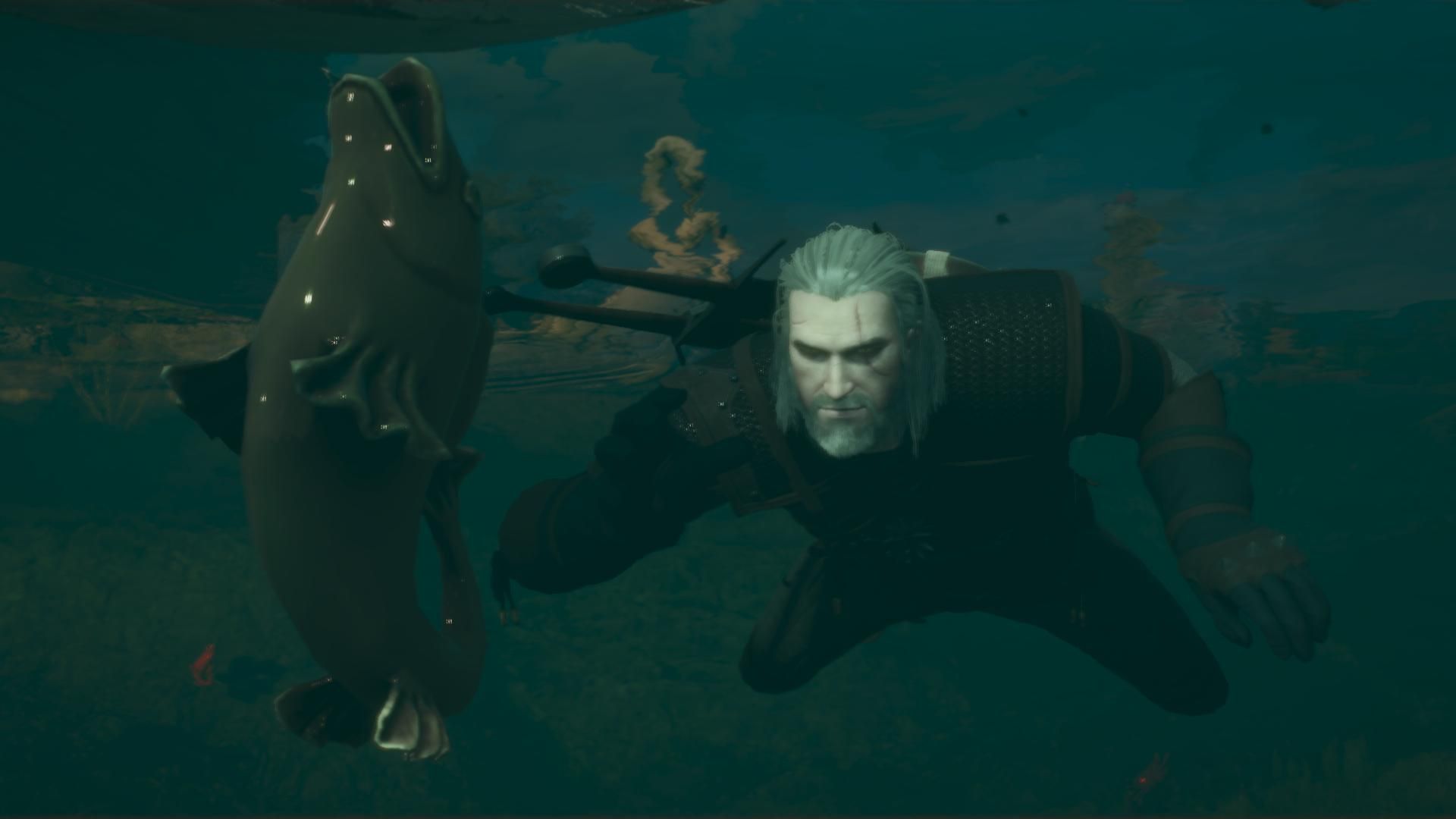
"You have to imagine something's happening to you and physically react in the way you might react," he explains, getting out of his chair and knitting his hands together. "So if you're being punched in the stomach, you have to physically go 'oomph'," he says, pushing both hands into his gut. He adds that, to make Geralt's drowning death noises, he brought a cup of water into the recording booth for a sort of drowning gurgle.
"You imagine you're taking that punch and make the sound you feel you would make," he says. "Breath and physical body and voice are all connected. We don't think about it that way most days. But when you train as an actor, you learn that it's all connected in a very, almost spiritual way. If you tap into your imagination and allow the connectedness that your body naturally feels in, you can recreate physical effects. I hear myself saying this stuff and I feel it's a mix of spirituality, hippy-dippiness, psychoanalysis and acting technique. Sometimes I feel I should lock myself up, but it's true for me."
As I wrap up the interview, Cockle invites me and our PR chaperone out for drinks. I can't say no to Geralt, so I agree, though I add that I don't drink. As we chat about alcohol and various other substances, I mention that some things are "not for everybody." My recorder is off at this point, which is the only reason I don't have a recording of the man behind Geralt casually saying: "Well, anal sex isn't for everybody."
So we head for the bar.
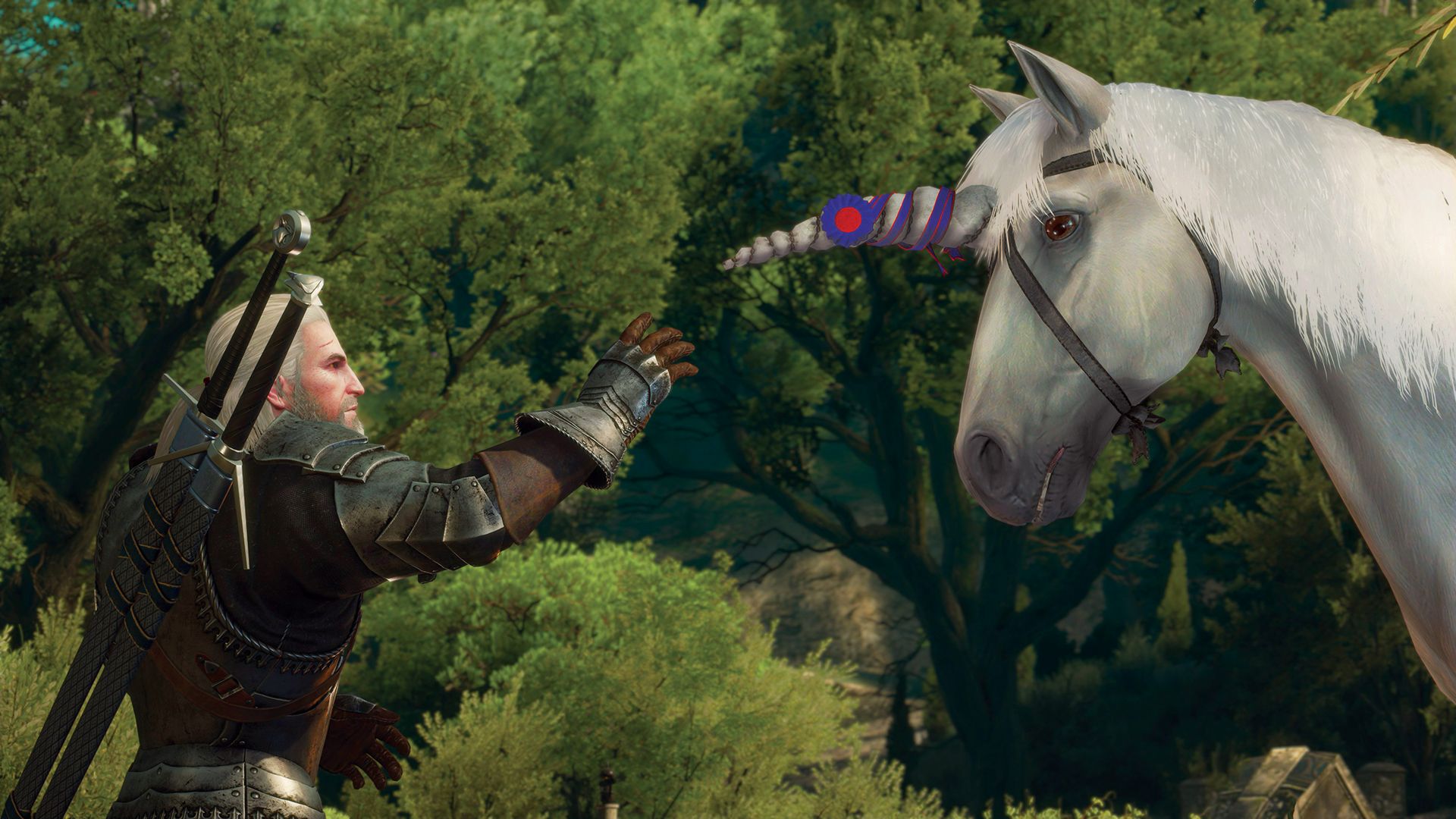
Not another sidequest
Before we can get to the bar—hell, before we can even leave the city block our hotel is on—the universe throws another sidequest at us. Not 50 feet out of the hotel, we see two women on the street. One, with long pink hair, is hunched down with her hands on the shoulders of the other woman, who's collapsed on the sidewalk, her legs sprawled out underneath her. A patch of her blood-red hair is matted to her forehead and her dark eyeliner is starting to run. She cannot stop coughing.
We stop to see if she needs help. Thinking of my asthmatic sister, I ask the pink-haired woman if her friend has asthma or some other respiratory condition, or any sort of inhaler to treat it. She doesn't. Meanwhile, Cockle again doesn't hesitate to act: he offers her some of his water, but as she reaches for his water bottle, she launches into another string of coughs and brings her hand back to cover her mouth. She's constantly coughing, which is actually a good sign because it means she's getting some air, but she's also not speaking, which is a bad sign.
As I scan around for drug stores, Cockle offers her his water again, and she manages to drink some this time. Finally, after a solid minute of small sips punctuated with coughs, she squeaks out a "Sorry," to the delight of everyone around. Her friend, in particular, looks like she could collapse from relief.
After another minute, the red-haired woman calms down a bit more and we're able to help her to her feet. She tries to return Cockle's water, but he's not having it. He insists she finish it. She does, and takes a much-needed deep breath. After another minute or two, she stops coughing, thanks us and explains that she and her friend are staying nearby. We finally part ways and head to the bar.
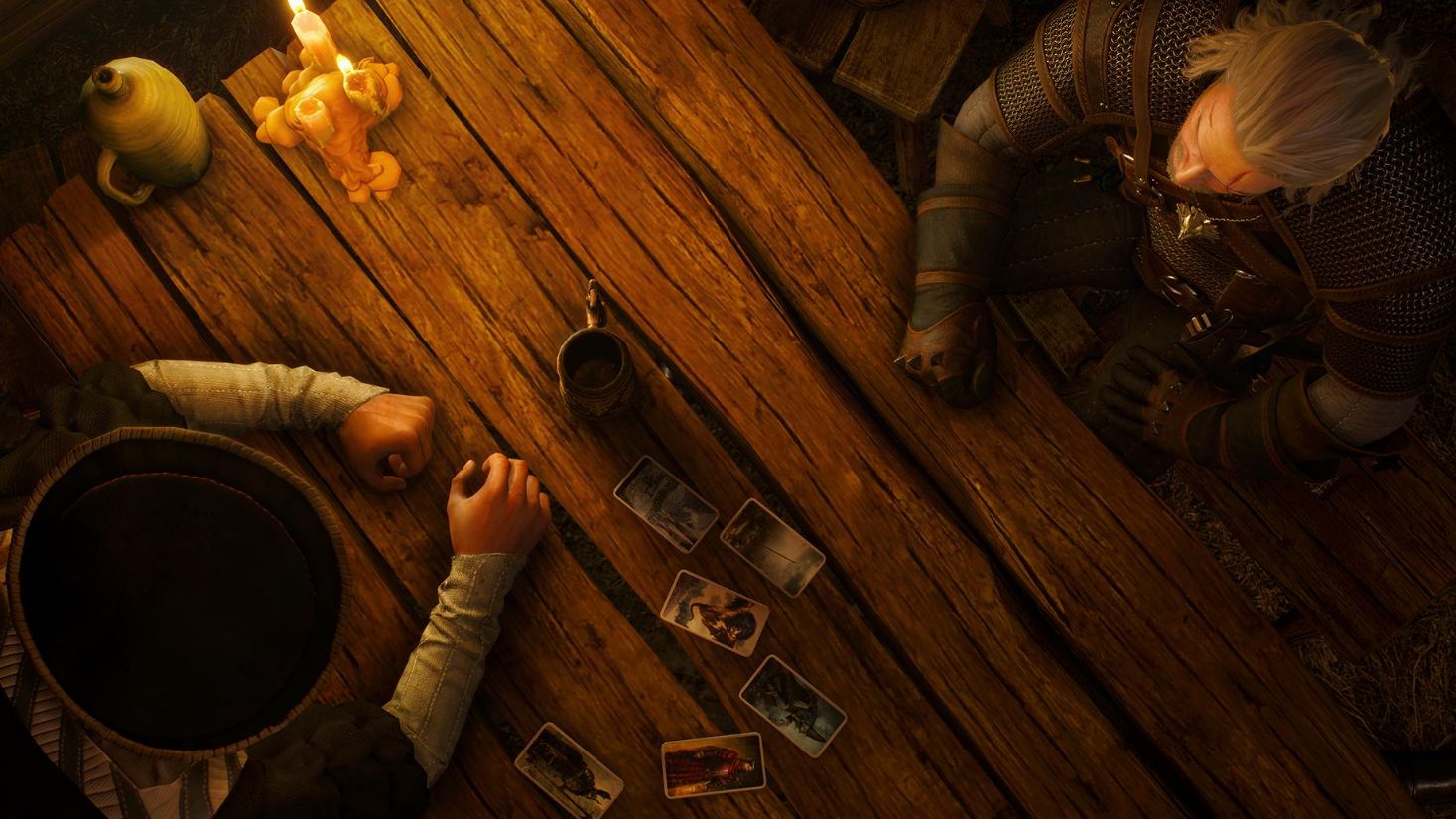
We slip in right at the bar's last call. Cockle orders a Dos Equis, immediately putting the image of Geralt doing those Dos Equis advertisements in my head. I pay for his beer and get a bottle of water because anal sex isn't for everybody. We talk about the culture of Atlanta, the differences between Atlanta and Cockle's home in England, and whatever else we can think of, like some fun facts from his panel. The first console he owned was an original Atari, for example, so his favorite childhood games were things like Tanks and Pitfall.
He tells me this is only the second time he's talked about Puppy in public, and that he never planned to mention him going into the panel. He says his favorite area in The Witcher 3 is Crookback Bog, "a place that had a really wonderful sinister feel that I think can be hard to create in games." Oh, and he hates Gwent.
We're the last ones to leave the bar, only looking up from our conversation when the bartender playfully shoos us away. As we walk back to our hotel, eyes peeled for the next Bernard or wheezing cosplayer, we chat about what he's going to do next. I know from his panel that he's not involved with Netflix's Witcher series—though he is hoping for a cameo, perhaps as a quest giver at a bar—and he says he's not going back to teaching. Teaching "had become a bit like Groundhog Day," he says, "doing the same thing year in, year out, same shit, different students."
Nobody really knows what's next for Cockle, including him. He's voiced a giant tree in Runescape and he's auditioned for a variety of film and television roles, so like he says, he "could be doing anything next week." To me and many others, though, he'll always be Geralt of Rivia.

Austin freelanced for PC Gamer, Eurogamer, IGN, Sports Illustrated, and more while finishing his journalism degree, and has been a full-time writer at PC Gamer's sister publication GamesRadar+ since 2019. They've yet to realize that his position as a staff writer is just a cover-up for his career-spanning Destiny column, and he's kept the ruse going with a focus on news, the occasional feature, and as much Genshin Impact as he can get away with.
